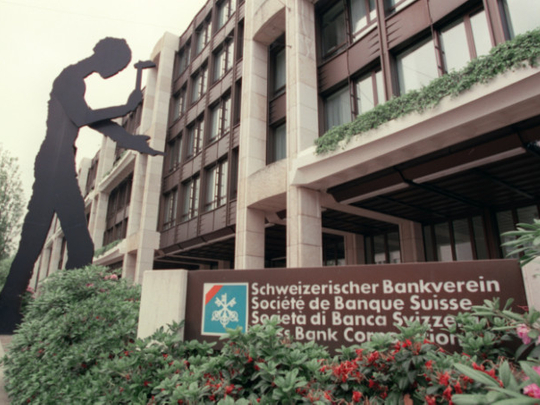
August was a cruel month for the Swiss banking industry; the cruellest so far. The American Department of Justice and the Swiss Federal Department of Finance announced a programme that may forever change private banking and which may force tax evaders out of the convenient forgetfulness of offshore accounts. According to the joint statement, Switzerland will aid the US Department of Justice in its tax evasion investigations and “intends to draw the attention of the Swiss banks to the terms of the programme and encourages them to consider participating therein.”
The programme, not available to 14 Swiss banks that are currently under formal criminal investigation by the US, involves significant financial penalties and information sharing from banks that aided secret account holders.
“I believe it will be very costly for a number of banks and will even threaten their existence,” Eduardo Leemann, CEO at Falcon Private Bank, tells GN Focus.
Legal certainties
Under the penalty provisions of the programme, banks seeking a non-prosecution agreement must agree to a penalty in an amount equal to 20 per cent of the maximum aggregate dollar value of all non-disclosed US accounts that were held by the bank on August 1, 2008. The penalty amount will increase to 30 per cent for secret accounts that were opened after that date but before the end of February 2009, and to 50 per cent for secret accounts opened later than that.
“The programme brings with it painful consequences for the banks in Switzerland. The fines in particular are at the upper end of legally acceptable and economically bearable levels. It is, however, the sole remaining solution for enabling the banks to resolve the legal problems with the US conclusively, and for creating legal certainty,” says a statement from the Swiss Bankers Association (SBA).
The requirement for creating legal certainty by vetting clients has already caused Credit Suisse’s private bank to take a decision to exit or partially withdraw from about 50 peripheral markets in Africa and central Asia where the returns do not justify the costs.
The private banking industry in the country has seen consolidation in the past few years. In one example, this February, Lombard Odier and Pictet, two of Geneva’s oldest private banks, announced the establishment of the corporate partnership overseeing limited companies, changing the ownership structure. The US-Swiss programme effectively puts a freeze on such activities, experts say.
“Due to the US-Swiss tax deal being negotiated we are unlikely to see any mergers or acquisitions in the short to midterm. The negotiations with the US have generated a lot of uncertainties with respect to possible financial and legal implications, which make valuations of Swiss banks with US exposures very hard,” Mario A. Camara, CEO, Swissquote Bank MEA, tells GN Focus.
Impact on industry
Already the bankers’ association has formed a group to help banks assemble internal data needed to apply for the programme, which while protecting the banks from prosecution may also prove costly due to the penalties.
Because different banks have significantly different exposures to the US, it is difficult to assess the impact on the industry as a whole. “Some banks will have to pay significant fines, but the positive result is that in the end the Swiss financial system will finally resolve this issue with US tax authorities,” says Camara. >
The Swiss, and indeed the global banking industry, is in a recovery phase following the world financial downturn. This is not the only regulation set to change things. A pending proposal for the revised Markets in Financial Instruments Directive, which aims to improve investor protection and competition across Europe, may force Swiss banks to set up branches or subsidiaries in the European Union to access onshore clients.
While larger corporate entities may be able to weather the pressure towards increased transparency, smaller banks are already closing down. Reports say that as many as 16 private banks have faced liquidation this year and as SBA has warned that the implementation of the regulation could see about 7,000 private banking jobs being culled when the entire industry employs about 100,000 people.
In the medium term the programme has set a precedent. “It will set a benchmark for other jurisdictions to negotiate the same or similar deals with Switzerland and therefore potentially put more pressure in the short and medium term to the banking industry,” says Leemann.
Air of optimism
Optimists say that secrecy is not the be-all and end-all of Swiss banking and the industry will play to its strengths. As Camara says, “The Swiss financial system is renowned for its caution, duty of care to its customers and discretion. Regardless of changes brought about by the arrangements with the US and European tax authorities, the Swiss banking system will continue to enjoy the political and financial stability of the country, being known as a jurisdiction where the rule of law is unquestionable, and [with] a deep pool of financial professionals and knowledge.”
SBA’s outlook for the year says that there is optimism for the future, based on the good economic starting point the banks enjoy, and the fact that developing and expanding new business areas such as asset management, trade financing and renminbi services will allow the financial centre to grow over the long term.
There is every reason to believe that the industry will take these changes in its stride. At the annual media conference last month, Patrick Odier, Chairman of SBA, said, “Our strategy can be summed up in the words — tax compliance, international standards, growth through open markets and fair competition.” ■


